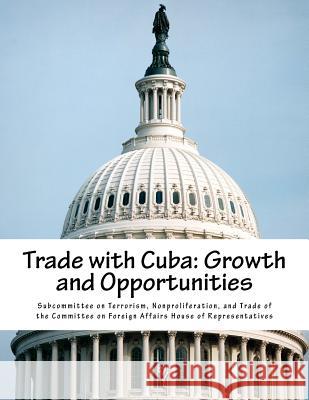Trade with Cuba: Growth and Opportunities » książka
Trade with Cuba: Growth and Opportunities
ISBN-13: 9781539322528 / Angielski / Miękka / 2016 / 88 str.
In 1962, the United States imposed a trade embargo on Cuba. Fifty-four years later, Cuba is still communist and the Castros are still in charge. But it has succeeded-this policy-in hurting U.S. agricultural business. In December 2014, the administration announced that the U.S. would take steps to normalize the U.S.-Cuba relationship. Cuba was removed from the state sponsor of terrorists list. A U.S. Embassy was opened in Havana. The Department of Treasury and Commerce rolled out three rounds of trade reforms. But it is Congress alone than can lift the embargo on Cuba. The United States used to be one of Cuba's most important agricultural trading partners. Before the embargo, Cuba bought more than half of the U.S. annual long grain rice. Rice exports to Cuba counted for over one-third of the total U.S. rice exports. Rice farmers were not the only ones hit by the drop of exports to Cuba. Wheat farmers haven't exported to Cuba since 2011. In 2014, the U.S. share of Cuban market was a measly 16 percent, down from a high of 42 percent in 2009.
Zawartość książki może nie spełniać oczekiwań – reklamacje nie obejmują treści, która mogła nie być redakcyjnie ani merytorycznie opracowana.











